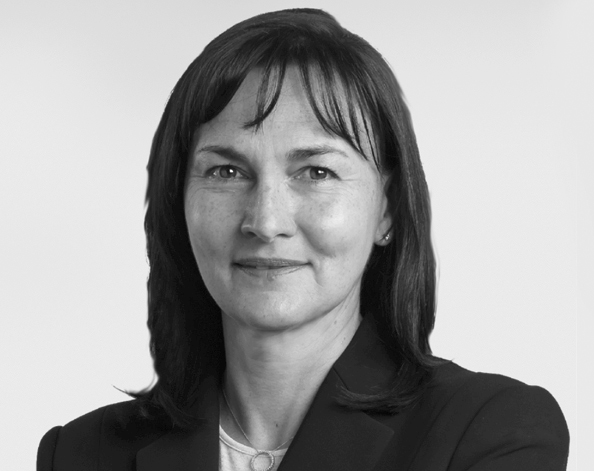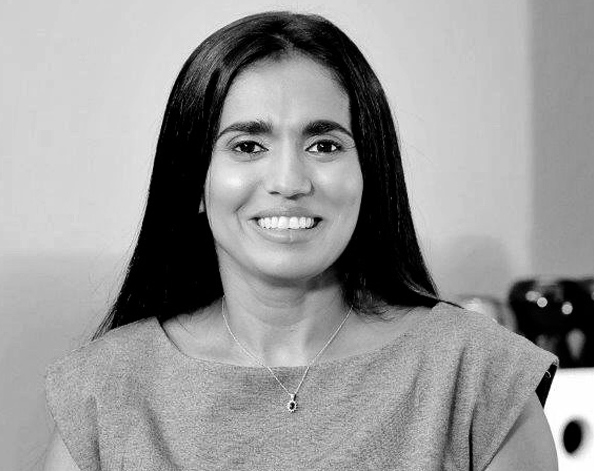In the fourth edition of The Other Side webcast series, Nkateko Mathonsi, senior mining analyst at Investec Bank, chats to two of the leading women in the PGM sector, Natascha Viljoen (NV), CEO of Anglo American Platinum and Meroonisha Kerber (MK), CFO of Impala Platinum, about what the future holds for the industry and some of the lessons from the recent past.
Listen to the full discussion on the go
Listen to the full podcast discussion between Investec's Nkateko Mathonsi, Anglo American Platinum's Natascha Viljoen and Impala Platinum's Meroonisha Kerber.
Subscribe to Investec Focus Radio SA
The PGM sector is one of the most important sectors in the economy, says Mathonsi. “This is a sector that has grown to contribute the largest share of South African mining revenue for the year ended June 2020, overtaking coal for the first time since 2010, on the back of very strong metal prices,” notes Mathonsi.
“The PGM industry is by far the largest employer within the SA mining sector, surpassing the gold and the coal industry. It is also the biggest payer with the largest employee earnings per commodity,” she adds.
It also has a crucial role to play in the transition to a greener economy – PGM catalysts are an important part of the technologies for producing and processing hydrogen for use in fuel cells. PGM catalysts have already been used to reduce emissions in catalytic convertors in cars for many years.
Here are some of the thoughts on this and other topics from our panel.

The PGM industry is by far the largest employer within the SA mining sector, surpassing the gold and the coal industry. It is also the biggest payer with the largest employee earnings per commodity.
The role of PGMs in a greener future:
Viljoen: “I’m quite bullish about the future of our product, very much driven by the clean air requirements and also the role that it will play in the decarbonisation of our future. If I look at the basket that we produce at Anglo American Platinum, we have a strong role to play in every aspect of this decarbonisation and driving the global demand for addressing global warming.”

We cannot have a carbon neutral product in the market, but our own operations aren’t carbon neutral. So other than the physical supply side and the number of ounces we put on the market, we need to consider capital allocation to our own processes, considering our own carbon footprint, and considering the total cost of doing business.
Lessons from the pandemic:
Kerber: “I think there were lessons learned across the board: engagement and collaboration with all stakeholders, particularly as an industry and with government, with our employees and labour who’ve been incredibly supportive.”
“We have 50,000 employees who work for us, so just in terms of how they enforced social distancing, mobilised the guys, the logistics of bringing people back after prolonged stoppage. I think the guys had to be very innovative and creative around managing the social distancing, managing it you know, so we could prioritise the health and welfare of our employees.”
“Finally, there’s the role that technology’s played. If you think about it, in terms of facilitating communication, as well as the role it played in mobilising our employees in educating them, in driving out the awareness around the pandemic and behaviours that we need to adhere to.”
Viljoen: “I think some of the biggest learnings for me were just the agility that we’ve had as an industry. If you consider that generally mining is actually seen as not agile, we have definitely leveraged from our understanding of managing health aspects like HIV and TB. And I think we’ve put systems and processes in place that set an example for the industry and South Africa as a whole.”
On balanced capital allocation:
Viljoen: “We are in the fortunate position now to have better prices and from that point of view it's definitely important for us to address this issue for us, across the business. To that extent, we’ll continue with our balanced capital allocation and that balance will not only go back to how we balance between growth projects and giving back to our investors, but it will also balance across the value chain.”
Kerber: “As much as we’ve enjoyed the benefit of a strong pricing environment, I think a lot of us have been around in the industry long enough to actually bear the scars of the sustained lower pricing environment. I think we’re much more prudent about our balance sheet and the flexibility and the strength we need going to the future. I think a lot of the mining companies are aware that, betting your entire balance sheet on a big project could put the company in a difficult position through the cycle. I think for all of us, returning dividends to our shareholders through the cycle is also, very important.
"As much as we’ve enjoyed the benefit of a strong pricing environment, I think a lot of us have been around in the industry long enough to actually bear the scars of the sustained lower pricing environment. I think we’re much more prudent about our balance sheet and the flexibility and the strength we need going to the future. I think a lot of the mining companies are aware that, betting your entire balance sheet on a big project could put the company in a difficult position through the cycle. I think for all of us, returning dividends to our shareholders through the cycle is also, very important."
On the likelihood of increased investment into greenfield projects:
Kerber: “I think [at] Implats [we had] a perfect example, of Waterberg, an exciting project with a shallow mechanised ore body and palladium rich; yet we made a decision not to pursue the opportunity. It was a project that required a significant capital investment over a number of years. Potentially, if we pursued the project we wouldn’t be able to continuously maintain a return to shareholders.”
Viljoen: “Similar to Implats, we’ve got a very disciplined, balanced policy around capital allocation with a diligence on reviewing our projects in making sure that there is a long term sustainability with a very conservative view on price, and that allows us to be very focussed. I would be very disappointed in us as a mining industry if we didn’t learn from the pain of 2008.”

I think diversity is a key differentiator and a strategic imperative. At Implats, we celebrate that and we embrace it. I am very proud to be part of a very diverse executive team and I think this makes us stronger for it, but when it comes to my own personal journey, I don’t think it's been defined by race or gender.
On the legacy we leave:
Kerber: “The signature I’d like to leave behind, is really around excellence, integrity, humility. If I look back when I leave Implats, I’d like to look back at a company that’s much more financially resilient and sustainable and has a much stronger balance sheet that is able to deliver meaningful returns for all of its stakeholders. On a personal note, I’d like to be able to empower and grow all the people.”
Vljoen: “If we look around our country we need to realise that the infrastructure that we see, the economic development that we’ve seen for many, many years has been founded in the economic activity developed by mining. The question we need to ask ourselves, is what does that look like going forward? How do we learn from the mistakes from the past and how do we create an environment where people are excited to become part of our mining industry because we are responsible, we are stewards of the ore bodies that we’ve been entrusted with?”
About the author

Patrick Lawlor
Editor
Patrick writes and edits content for Investec Wealth & Investment, and Corporate and Institutional Banking, including editing the Daily View, Monthly View, and One Magazine - an online publication for Investec's Wealth clients. Patrick was a financial journalist for many years for publications such as Financial Mail, Finweek, and Business Report. He holds a BA and a PDM (Bus.Admin.) both from Wits University.
Get Focus insights straight to your inbox








